
Proposals for a South Atlantic whale sanctuary have been defeated in the first vote at the International Whaling Commission’s meeting this year.
Proposed by Latin American countries, it would have seen whale protection extended northwards from the existing Southern Ocean sanctuary.
Meanwhile, Denmark has moderated a controversial plan to boost subsistence whaling by Greenland Inuits.
Discussion on Japan’s plans for limited commercial hunting is to continue.
The plans would see Japanese coastal communities allowed to take a small minke whale each year, with the meat being sold locally.
Anti-whaling countries view the proposal as a breach of the 21-year moratorium on commercial whaling.
Japan and its backers argue that its coastal communities are just as entitled on historical and cultural grounds to a small annual catch as the indigenous peoples of Alaska, Chukotka in Russia, St Vincent and the Grenadines, and the native American Makah tribe of the western US.
The requests of all these groups to continue subsistence (aboriginal) hunting for the next five years were all granted here.
Latin American countries have repeatedly tried to establish a sanctuary in the south Atlantic, and professed themselves disappointed at the vote.
Delegations supported the proposal by a margin of 39 to 29, which fell short of the three-quarters majority needed. Japan voted against, as did Norway, Denmark and many Caribbean and African countries.
“We are very sad because we are trying to emphasise (the needs of) many coastal communities in Brazil, in Uruguay, Argentina, even South Africa, but they are not respected here with this decision,” Argentina’s whaling commissioner Eduardo Iglesias told BBC News.
“The position of Japan is particularly inconsistent – it asks why its small coastal communities cannot have some kind of whaling, and when we ask for some protection for whales in our areas, they don’t respect that.”
Emotive issue
Japan’s coastal whaling proposal has caused huge controversy, and there seems little chance of making a deal, despite rumours circulating in US NGOs that a compromise has been reached.
This would have seen, in return for some consideration of coastal whaling, Japan abandoning plans to include humpback whales in its Antarctic catch, which it maintains is for scientific research.
The humpbacks are an emotive issue for Australia and New Zealand where their acrobatic leaps and tumbles are a highlight for whale-watchers.
Denmark’s plan to include humpbacks in an expanded hunt by its Inuit communities in Greenland provided the one controversial element in the subsistence whaling debate.
IWC scientists maintained data on humpback stocks around Greenland was not good enough to set a sustainable catch level.
The Danes have removed humpbacks from their proposal. But consensus could not be reached on other aspects, and a decision has been deferred until the meeting’s final session on Thursday.
Source: bbc.co.uk



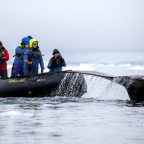
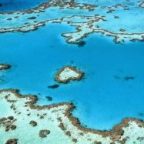
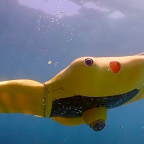
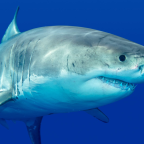

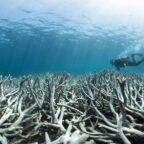
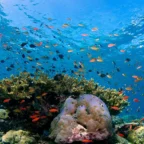


Social Profiles